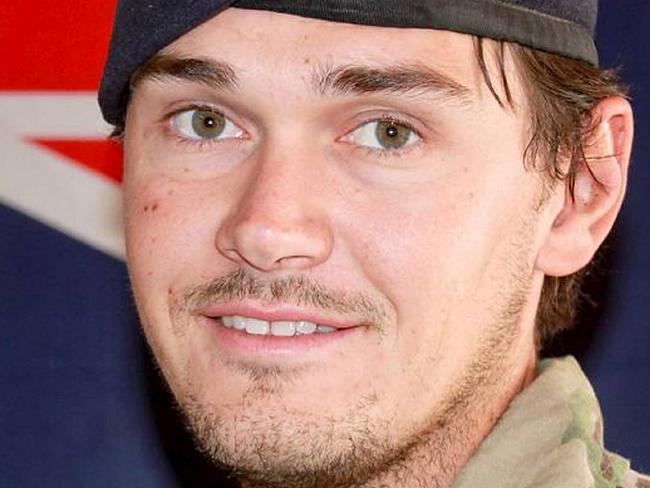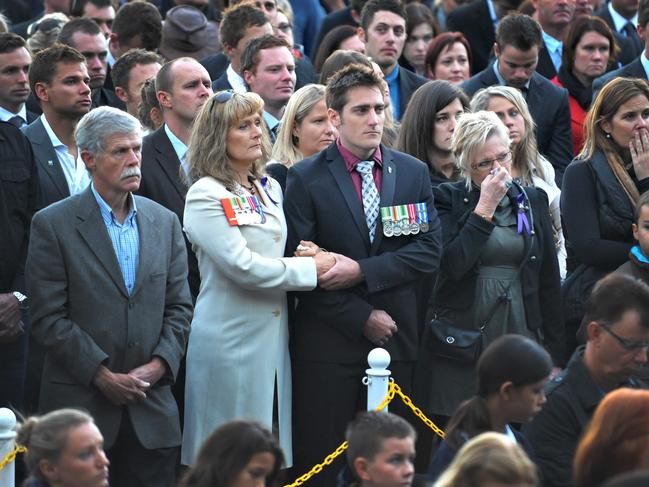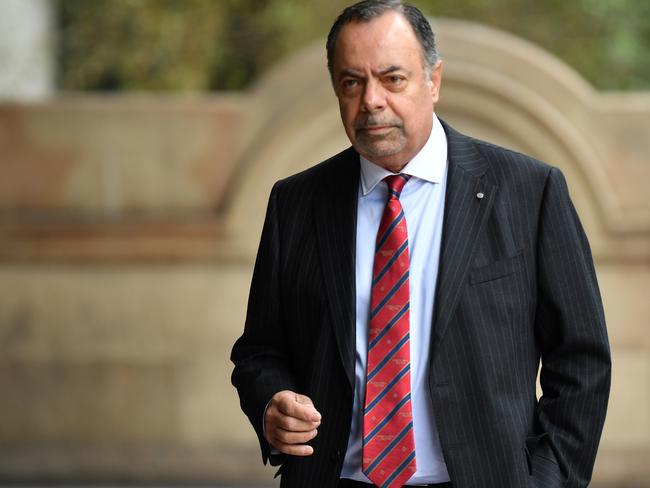Royal Commission into Defence and Veteran Suicide set to hold its first public hearing
A retired platoon commander has claimed an ABC report damaged the mental health of dozens of soldiers. Now war veterans will finally get their say.
National
Don't miss out on the headlines from National. Followed categories will be added to My News.
Each year on October 21, members of the November Platoon come together to commemorate their fallen comrade Corporal Scott Smith.
The 24-year-old was killed by an IED while on a clearance mission in Helmand province in Afghanistan in 2012 and the annual gathering is a chance for his Special Forces comrades to raise a glass in his honour.
But last year as they met at the North Bondi RSL, it was with even more mixed emotions as the ABC news on the night before raised an allegation that sullied them all.
The report, since widely disputed, was based on an American soldier who claimed Australian Special Forces – specifically November Platoon of the 2nd Commando Regiment – shot and killed a bound Afghan prisoner because there was not enough room in the helicopter.


The bizarre claim hung off the testimony from an unnamed US Marine saying what he thought he heard that sounded like a gunshot through his chopper headphones.
“It was a mess,” November platoon commander at the time Heston Russell recalled.
“You can just imagine, it was crazy, everyone at the event just couldn’t understand how this ABC report was allowed to occur, guys were wondering what it would do to Scott’s legacy and his mother who was there, was consoling them while they should have been consoling her.
“When you are not naming anyone individually you are implicating everyone collectively and guys were breaking down.”
The now retired Major Russell said that one ABC report alone had damaged the mental health of dozens of soldiers who were associated with November Platoon and their families.
He said many of the men have kids who Google their dad’s platoon and see this slur and ask them about war crimes.
Next Friday the Royal Commission into Defence and Veteran Suicide will hold its first public hearing in Brisbane to help unravel what has been behind the more than one veteran a week taking their own life.

The two-year $174 million inquiry will look at the systemic issues and “contributing factors” that has led to a veteran committing suicide at a rate of almost once a week.
While some will automatically assume it is the horrors of war seen on the battlefield as the driver behind the horrific suicide rate or those seeking mental health crisis care, they will be wrong.
It is so much more complex than that and includes things like the shaming of November Platoon and the impact felt not just by the soldier but their families.
Russell created the charity Veteran Support Force, specifically to help and support veterans and their families to engage with the commission and agreed mental trauma was as much in what veterans face in the civilian world as it was on the frontline.
He said it was time the government and Defence took responsibility, rather than just leaving it to veterans organisations.
The Brereton Inquiry into war crimes, which came out a month after that ABC report in November 2020, will also likely feature in evidence.
Its shambolic public release initially condemned all who served under the Special Operations Task Group (SOTG) between 2007 and 2013.

The ADF ordered all who served in the SOTG, living or dead, be stripped of their Meritorious Unit Citation under a “collective responsibility”.
The trauma of that edict, reluctantly withdrawn some months later, cannot be understated.
Even the soldiers who were accused of war crimes including murder have yet to have a single charge laid and now face the prospect of years of further investigations.
The resignation rates from Special Forces has never been higher as a direct consequence of a loss of faith in the armed services and perceived loss of support from Defence high command where no-one of rank has been held to account of what transpired in Afghanistan.
Five months after the announcement of the royal commission, a report by the Australian Institute of Health and Welfare concluded more than 1200 former or serving ADF personnel have died by suicide between 2001 and 2019.
The sobering figure is likely to be much higher today since it came before the fall of Afghanistan to the Taliban that Australia battled for 20 years to oust. Add to that a high-profile defamation court case against one soldier accused of war crimes (which he has vehemently denied), a current parliamentary inquiry into what the Afghan campaign achieved and the isolation produced by Covid-19 lockdowns.

Former NSW Police Deputy Commissioner Nick Kaldas has been a popular choice as commissioner and chair of the commission not least of all with his three word probe pledge – “we are listening”.
Kaldas will be joined on the commission bench by the recently retired Queensland Supreme Court judge James Douglas QC and Dr Peggy Brown AO, a fellow of the Royal Australian and New Zealand College of Psychiatrists and a former CEO of the National Mental Health Commission.
On behalf of the commissioners, Kaldas said the commission was empowered to investigate a range of issues without fear or favour.
“To do this we need your help and your stories, so that we can learn as much as we can about the issues and situations surrounding the deaths by suicide of defence personnel and veterans,” he said.
“We want to hear, learn and then act, informed by your accounts and your experiences.”
More Coverage
Originally published as Royal Commission into Defence and Veteran Suicide set to hold its first public hearing




